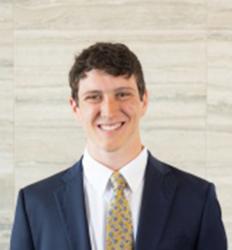As our lives begin to crank back up after over a year of turmoil, we have to ask the question: what comes next for society?
As usual, politicians have their own answer, eager to wade into new spheres during times of crisis. True to form, the federal government has already gleefully claimed the job of reorganizing the economy post-pandemic.
Pay attention to the language used by the White House in President Biden’s “Build Back Better” statement: It is the president who will be jumpstarting the economy, the president who will be “mobilizing American talent and heart,” and the president who will be rewriting the “social contract” between the nation and her government.
Freeing the economy from government interference might be a lost cause, but there is another area that politicians are attempting to creep into: America’s communities.
Why does this matter? Community life is just as important as economic life, if not more so. The relationships and activities found in our communities are not just a facet but a fundamental expression of humanity itself. As sociologist Robert Nisbet put it:
The family, religious association, and local community – these, the conservatives insisted, cannot be regarded as the external products of man’s thought and behavior; they are essentially prior to the individual and are the indispensable supports of belief and conduct. Release man from the contexts of community and you get not freedom and rights but intolerable aloneness and subjection to demonic fears and passions.
Over this past year, a tragic number of Americans experienced this “intolerable aloneness,” whether due to government-mandated lockdowns or self-enforced isolation. By government order, our churches were closed, choirs cancelled, sports leagues postponed, and schooling swapped for computer screens.
As these spaces and places reopen across the country, it’s a chance for Americans to reclaim the mantle of community leadership. If we don’t, our leaders in Washington, D.C., will be more than happy to step in.
So what should a strong community look like? First of all, it must be physical. Computers are no substitute. Roger Scruton, the conservative English philosopher, defines human community as “animated by oikophilia: the love of the oikos, which means not only the home but the people contained in it, and the surrounding settlements that endow the home with lasting contours and an enduring smile. The oikos is the place that is not just mine and yours but ours.”
The Kentucky farmer Wendell Berry echoes this theme: a community is “a group of people who belong to another and to their place.” This sense of belonging occurs in the family, the business world, and social groups of every kind.
As Scruton puts it: “Conservatism is the philosophy of attachment. We are attached to the things we love, and wish to protect them against decay.” Conservatism is inherently skeptical of bold, sweeping ideas. We risk losing that which we love if we let others manage it for us, even if those others provide the stamp of authority or good intentions.
Centralized government, no matter how optimistic or progressive, can never understand the special friendship you have with your neighbors, the traditions of your faith, or the rich social fabric of your town. Jane Jacobs wrote about this in 1961, describing misguided city planning that destroyed the historic vibrancy of neighborhoods to create parks that no one used, all in the remote bureaucratic ideal of urban cleanliness.
Furthermore, the conservative community ideal is grounded in a truth and morality that is rarely seen in politics. Communities built on morality simply run better. Studies show that a culture of virtue at work quantifiably improves performance and religious affiliation is linked to higher levels of civic engagement across the board.
With this in mind, how can we really build our communities back better?
- Follow the conservative model for communities: focused on real human interaction, centered on a physical place, grounded in tradition, anchored in truth and morality, and led locally.
- Refute the isolationist mentality that many have adopted over the past year. By demonstrating love and fulfillment through active membership in a community, we can draw others from the fringes of “intolerable loneliness.”
- Create new communities whenever you see a gap. There is no one-size-fits-all template. If we don’t use our creativity and leadership to restore places for human interaction and fulfillment of a common goal, we risk the void being filled by cold bureaucracy or selfish hedonism. Worse still, the void will continue to grow.
It is in the restoration of this true community, guarded by freedom but bounded by love, that the restoration of America lies. We as conservatives must lead the effort.

